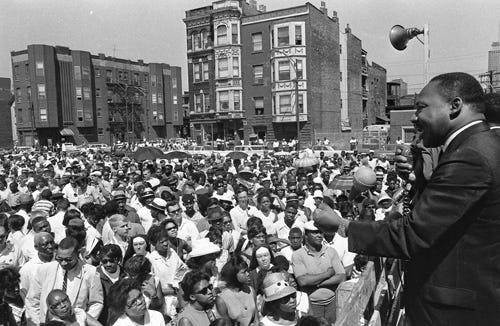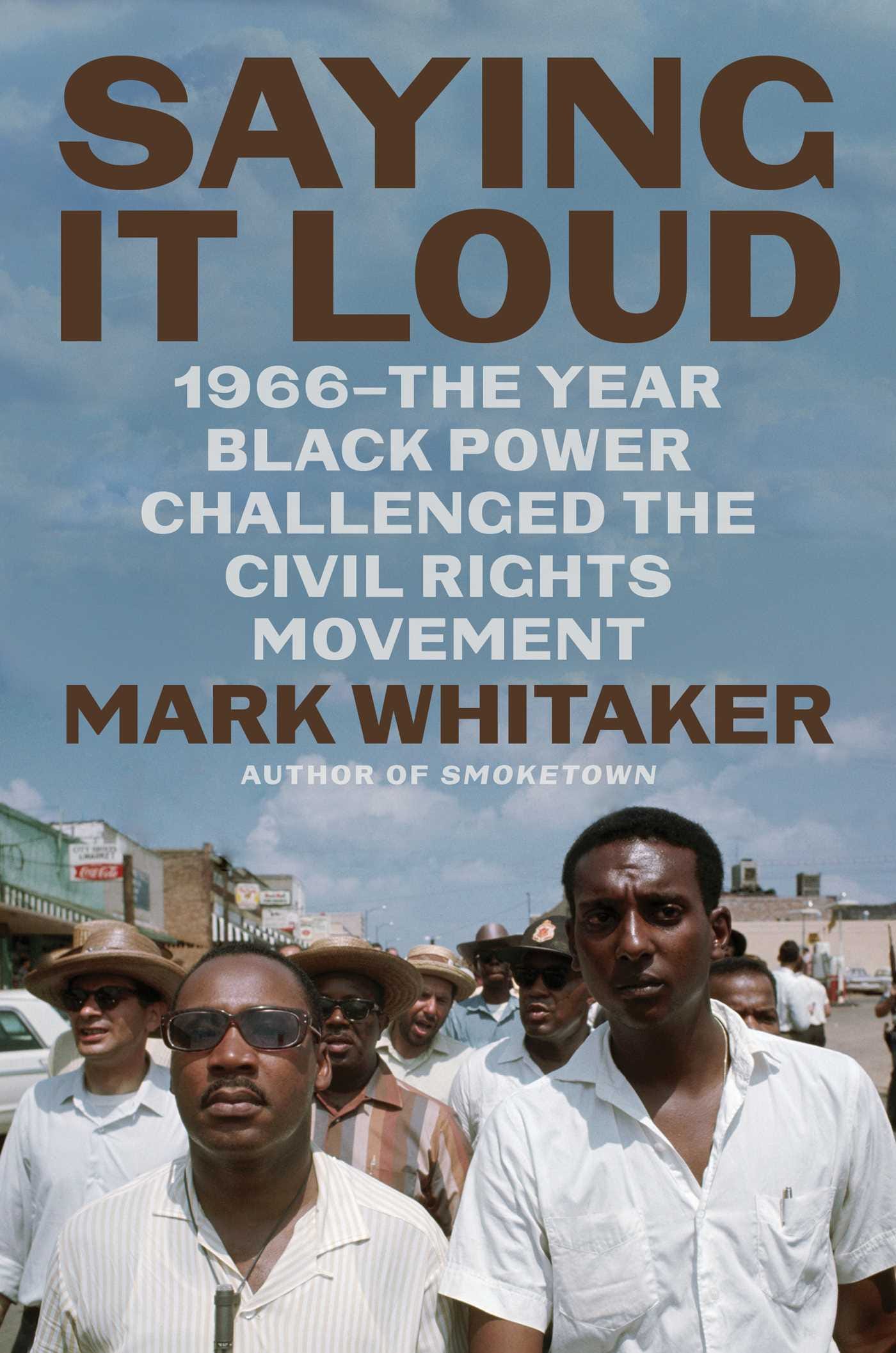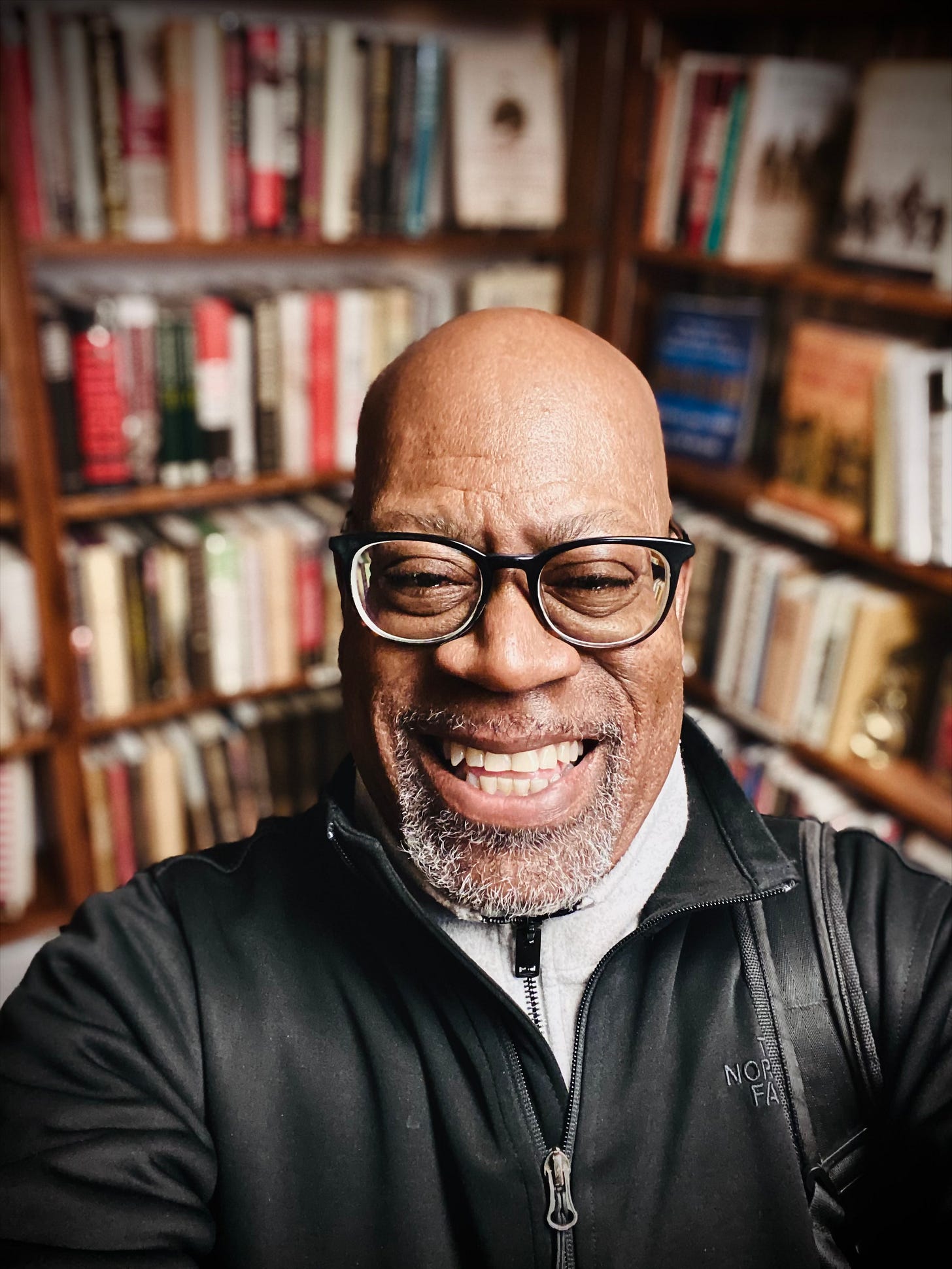Martin Luther King Day is not just a commemoration of a great leader's life and legacy, it's a resonant call to action, a reminder of the strides we've made as well as the long trajectory of work ahead.
Dr. King, in his relentless quest for equality, shed light on the stark realities of housing inequality – an issue that remains pivotal in the ongoing dialogue about racial and economic justice.
During his lifetime, Dr. King recognized that the dream of equality was inextricably linked to the right to adequate housing. He called for an end to redlining, the discriminatory practice that denied mortgages to people in certain neighborhoods based on race, demanding fair housing legislation.
Dr. King's efforts culminated in the Fair Housing Act of 1968, a historic piece of legislation aimed at ending discrimination in renting, buying, or securing financing for housing. Today, as we celebrate his legacy, we must reflect on how housing inequality persists and is compounded by disparities in employment, education, and access to credit.
Recognizing the significance of Martin Luther King Day means acknowledging that our work is far from finished. It's a day to recommit to the principles Dr. King stood for – a society where every person has a key to their own home, not just as a matter of shelter, but as a fundamental right that empowers communities and enables the pursuit of happiness and prosperity.
In 1966, King launched a campaign against segregation and housing discrimination in Chicago, a bold move that brought to the forefront the systemic barriers preventing Black Americans from homeownership and the chance to build generational wealth.
North Lawndale, a Chicago community located on the city’s West Side, has seen its share of tough times. Crime, poverty, unemployment, and property deterioration dotted the neighborhood for decades.
Few are aware, however, that Dr. Martin Luther King, Jr. spent six months of his life in that neighborhood to bring attention to the issue he felt was underlying all of this, which was housing. He took up residence in a rundown tenement at the corner of 16th and Hamlin.
On the heels of the Civil Rights Act of 1964 having been passed, King and his entourage felt that bringing their movement to "the heart of the ghetto" in Chicago, would bring attention to the substandard housing plight of Black Americans.
When they arrived on January 26th, 1966, King and his wife Coretta reportedly encountered a broken door, dirt floors and an "overpowering" smell of urine.
As was chronicled in Chapter 3 of “Saying It Loud: 1966-The Year Black Power Challenged The Civil Rights Movement” by Mark Whitaker, a book I had the good leisure of reading:
“After eight apartments were rejected as unlivable, (his close confidants ) agreed that a run-down four-room flat renting for $90 a month would be pursued for King in a three-floor walk-up building at 1550 Hamlin Avenue. Afraid that the building’s owner might back out of the deal once he learned the identity of the intended occupant, (one of the members of his) entourage signed the lease himself.”
But according to the book, here’s where things became interesting:
“When word leaked out that the rental was for Dr. King, the landlord Alvin S. Slavic, had an unexpected reaction. “I’m delighted to have him, Slavic said. ‘What can I say?’ Slavic dispatched four painters, two plasterers, and two electricians to spruce up the building in advance of King’s arrival. Amused by the turn of events, the editors of the Chicago Defender suggested that King might solve the housing crisis on the West Side single-handedly by moving from tenement to tenement.”
“It Wasn’t the Plan, But Dr. King Shows How to ‘Cure’ a Slum Building, “teased the paper’s headline.”
In moving to Chicago, Dr. King sought to ignite a movement around "open housing.” Despite a 1948 Supreme Court ruling that neighborhood restrictive covenants were unenforceable, Chicago and scores of other cities continue to experience de facto segregation through intimidation and force.
In ensuing years, redlining prevented entire Black communities from securing mortgages. Moreover, property owners used predatory contracts to attract Black families to crumbling houses at unfavorable rates. As a result, these residents often faced major challenges amid their desire to move out of slum conditions in neighborhoods like North Lawndale.
After months of protests, marches and speeches demanding housing justice for Black Chicagoans, then Mayor Richard J. Daley decided to move forward with a "summit agreement" with King, generally agreeing to his demands. Daley vowed to address the discriminatory environment Black resident’s found themselves under. In return, he asked for a concession, namely that King take his movement to "eradicate a vicious system which seeks to further colonize thousands of Negroes within a slum environment," out of the city.
While the Chicago Freedom Movement played a pivotal role in then President Lyndon B. Johnson signing into law the Fair Housing Act of 1968, scores of Black U.S. communities like North Lawndale still remain among the most poverty ridden in America
Since the days of Dr. Martin Luther King Jr., there have, however, been improvements in housing equality, largely due to civil rights legislation and increased awareness. The Fair Housing Act of 1968 marked a significant legal step forward.
However, the journey toward housing equality remains fraught with challenges. Disparities persist due to factors like socioeconomic status, racial profiling, and gentrification. While notable progress has been made, the vision of complete housing equality that Dr. King advocated is a work in progress, requiring continual effort and systemic change to fully realize.
As we look forward, Martin Luther King Day should serve as a catalyst for innovation in addressing housing inequality. It calls on policymakers, community leaders, and citizens to champion affordable housing initiatives, to invest in neglected neighborhoods, and to eradicate the lingering vestiges of segregation. Honoring Dr. King's legacy means creating a future where everyone has an equal opportunity to secure a place they can call home.
"Black Books, Black Minds" is the vibrant heart of the "Great Books, Great Minds" passion project, a celebration of literary brilliance that I joyfully pour my soul into. Through countless hours of dedicated research and spirited writing, I curate an inspiring collection of stories, ideas, and voices from Black History's most influential authors and thought leaders.
Join us on an exhilarating journey to foster a community brimming with connection and a sense of belonging. Delight in our digital newsletter that brings you a world-class book experience, spotlighting the finest non-fiction authors and book evangelists who illuminate Black History themes.
If our newsletter enriches your day and resonates with you, consider embracing the full experience by becoming a valued paid member supporter. With just $6.00/month or $60.00/year, you can help this project flourish and continue to celebrate the stories that shape our world.






